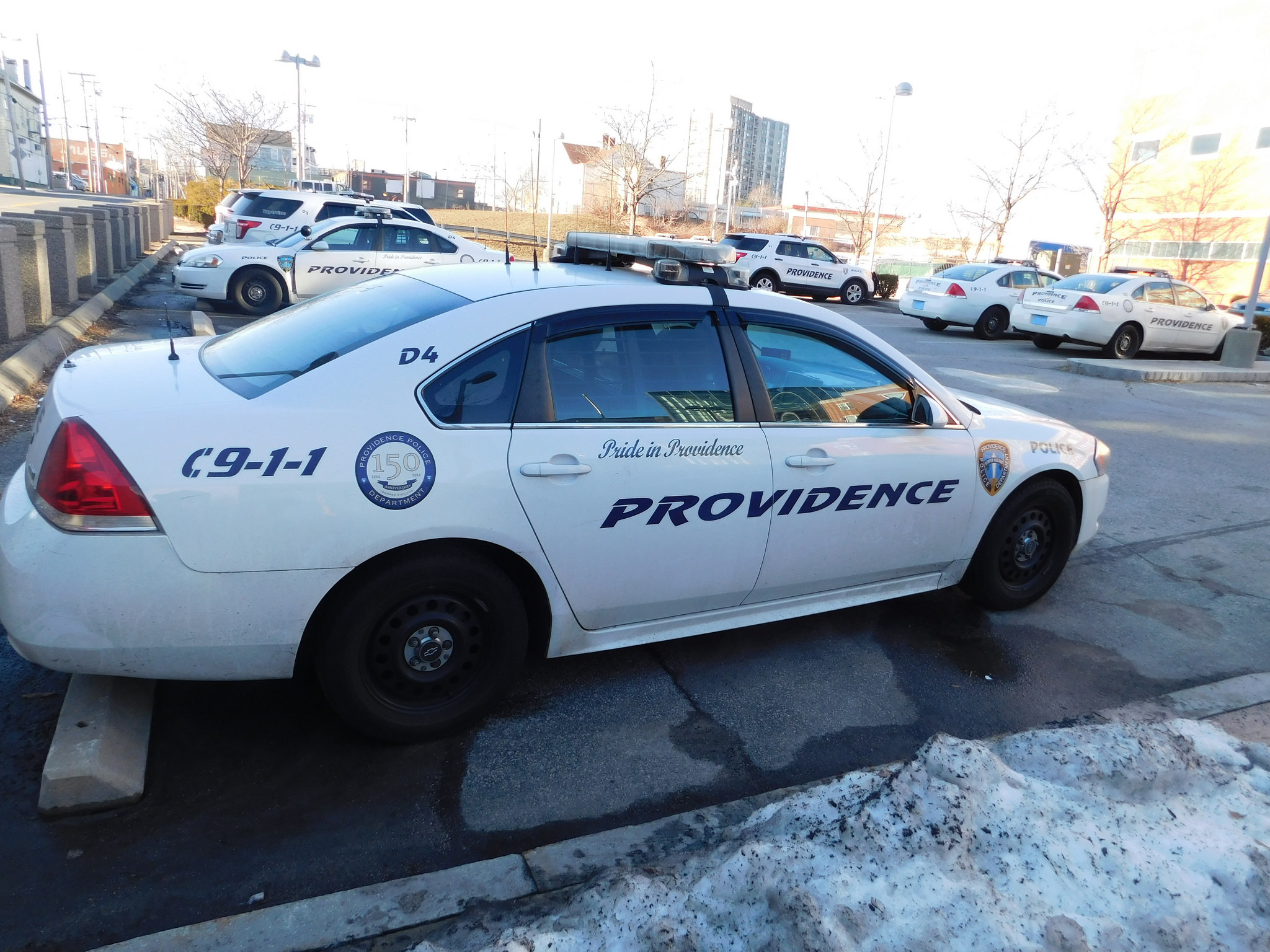Boston, Providence police plan to use body cameras
No police officers in Boston have volunteered to participate in a body camera pilot program the department is set to start on September 1st. The city’s Police Commissioner William Evans says he may have to force officers to wear cameras, since not a single officer has...
No police officers in Boston have volunteered to participate in a body camera pilot program the department is set to start on September 1st.
The city’s Police Commissioner William Evans says he may have to force officers to wear cameras, since not a single officer has volunteered. The pilot program will equip 100 officers — about 5 percent of the force — with body cameras for six-months.
Here in Providence, police finished up an eight week pilot program earlier this year. Ten volunteer officers tested out two different types of cameras, from TASER International and VIEVU, for four weeks each. The pilot program came at no cost to the Providence department. After the pilot, Providence Captain Dean Isabella said the department wants body cameras for every officer, but funding is an issue.
“There are departments all over the country that were going to do body worn cameras and then when they got the bill for them the cost was just prohibitive. We’re dealing with the same situation here,” said Isabella.
 To help with the cameras’ high price tag, the Providence Police Department has applied for a federal grant to fund body cameras for its officers. Other police departments, like those from Syracuse, New York and Thomasville, North Carolina, have also applied for federal funding.
“The cameras are a good idea. The only concern we would have is that if the city has to fund this program … we’re already short of money as it is. We have issues with other pieces of equipment that are just as important or more important than the cameras themselves,” said Sergeant Robert Boehm, president of the Providence Fraternal Order of Police Lodge #3, a union that represents police officers in the city.
“We have vehicle issues, we have computer issues. There’s so much more that the money could be allocated towards that would also help the community and the police,” Boehm added.
The use of body cameras is spreading, and the police departments of major cities like Los Angeles and Minneapolis will begin using cameras in the coming months. These cities have also faced hurdles when it comes to funding. Los Angeles’ City Council vote on funding body cameras faced six months of delays, and neither Los Angeles nor Minneapolis will be giving cameras to all of its officers.
Public demand to hold police accountable has contributed to the growth of body camera programs. There’s limited data about the impact of body cameras on policing because most programs are in their initial stages — but a March 2015 report by the President’s Task Force on 21st Century Policing found that police officers wearing body cameras reported 59% fewer complaints from the public than those not wearing cameras.
“If it builds trust in the community with the police, that’s great, we’re all for it. We’re just hoping that if we do go to the cameras, it’ll build that support that we need,” said Boehm.
Boehm says local organizations representing people of color have called for the Providence police to wear body cameras. The Community Safety Act, a proposed city ordinance that aims to end racial profiling in policing, includes language on how police officers should use cameras.
Some civil rights advocates are praising police departments’ body camera programs as steps toward greater accountability amid protests nationwide over police killings of black people. But others say the programs are not comprehensive enough. For example, some advocates are criticizing the volunteer aspect of the pilot program in Boston, because they say only officers with good records are likely to sign up.
The Milwaukee police officer who fatally shot Sylville Smith, a 23-year-old black man, in Wisconsin on Saturday was wearing a body camera during the act. However, the video is currently possessed by the Wisconsin Department of Justice, the agency investigating the death, and the video has not been released to the public. Many people are demanding the footage, and say that its release could help calm tensions in the city.
“What would the purpose of the body camera be if you’re not actually going to view it in these sorts of circumstances?” asked Boehm.
With additional reporting by Emily Wooldridge.
To help with the cameras’ high price tag, the Providence Police Department has applied for a federal grant to fund body cameras for its officers. Other police departments, like those from Syracuse, New York and Thomasville, North Carolina, have also applied for federal funding.
“The cameras are a good idea. The only concern we would have is that if the city has to fund this program … we’re already short of money as it is. We have issues with other pieces of equipment that are just as important or more important than the cameras themselves,” said Sergeant Robert Boehm, president of the Providence Fraternal Order of Police Lodge #3, a union that represents police officers in the city.
“We have vehicle issues, we have computer issues. There’s so much more that the money could be allocated towards that would also help the community and the police,” Boehm added.
The use of body cameras is spreading, and the police departments of major cities like Los Angeles and Minneapolis will begin using cameras in the coming months. These cities have also faced hurdles when it comes to funding. Los Angeles’ City Council vote on funding body cameras faced six months of delays, and neither Los Angeles nor Minneapolis will be giving cameras to all of its officers.
Public demand to hold police accountable has contributed to the growth of body camera programs. There’s limited data about the impact of body cameras on policing because most programs are in their initial stages — but a March 2015 report by the President’s Task Force on 21st Century Policing found that police officers wearing body cameras reported 59% fewer complaints from the public than those not wearing cameras.
“If it builds trust in the community with the police, that’s great, we’re all for it. We’re just hoping that if we do go to the cameras, it’ll build that support that we need,” said Boehm.
Boehm says local organizations representing people of color have called for the Providence police to wear body cameras. The Community Safety Act, a proposed city ordinance that aims to end racial profiling in policing, includes language on how police officers should use cameras.
Some civil rights advocates are praising police departments’ body camera programs as steps toward greater accountability amid protests nationwide over police killings of black people. But others say the programs are not comprehensive enough. For example, some advocates are criticizing the volunteer aspect of the pilot program in Boston, because they say only officers with good records are likely to sign up.
The Milwaukee police officer who fatally shot Sylville Smith, a 23-year-old black man, in Wisconsin on Saturday was wearing a body camera during the act. However, the video is currently possessed by the Wisconsin Department of Justice, the agency investigating the death, and the video has not been released to the public. Many people are demanding the footage, and say that its release could help calm tensions in the city.
“What would the purpose of the body camera be if you’re not actually going to view it in these sorts of circumstances?” asked Boehm.
With additional reporting by Emily Wooldridge.

A Providence Police Department car, out in the streets. Credit: Mackenzie Abernethy

